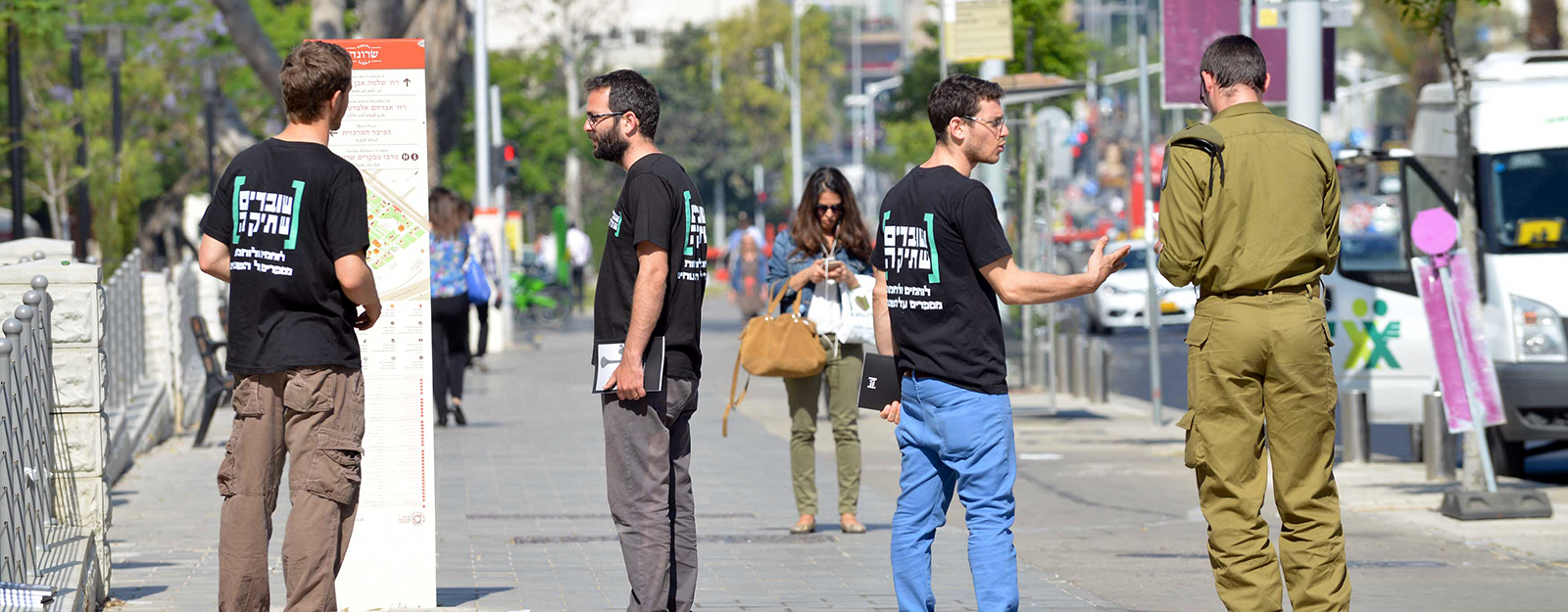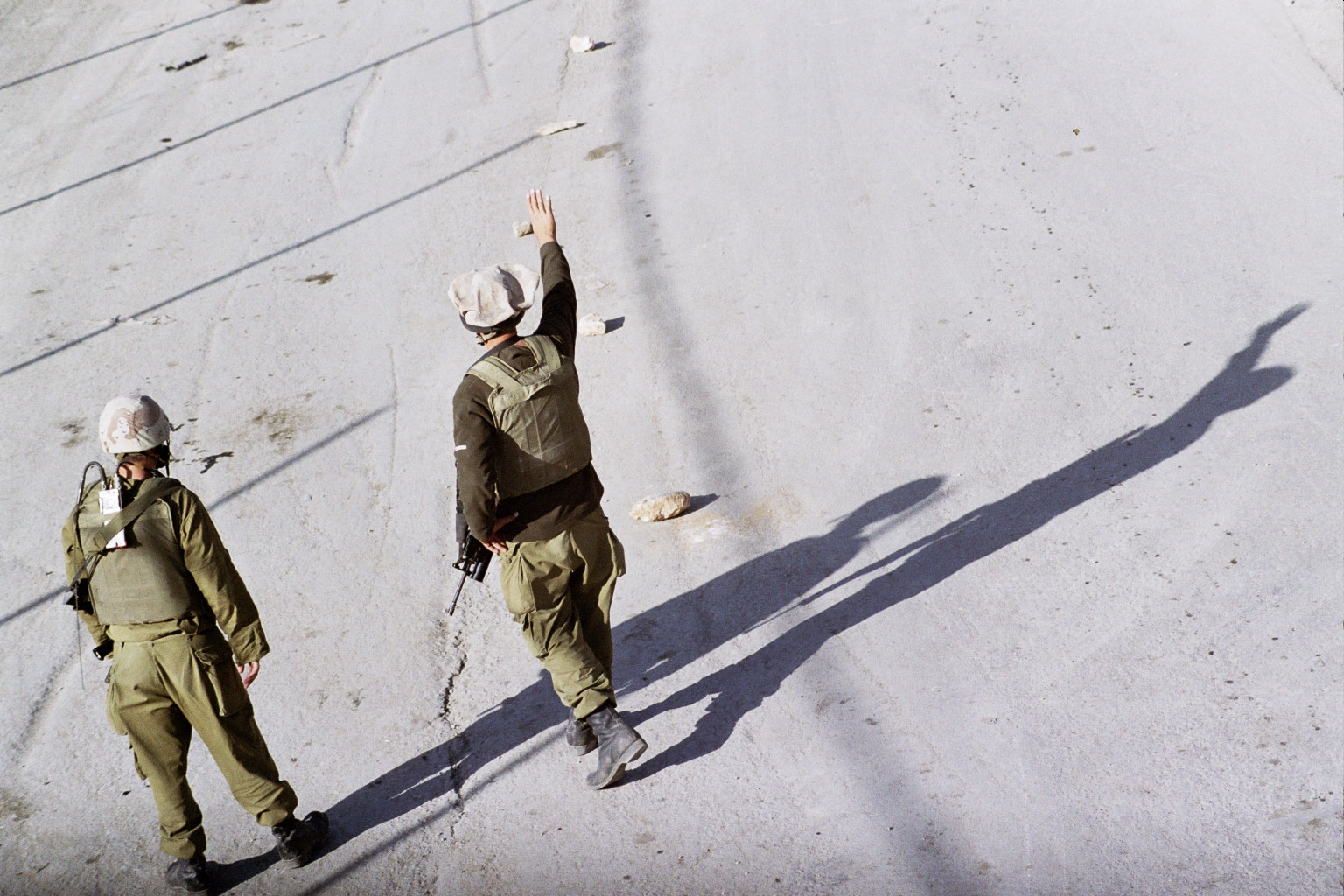There’s a new program which is called Blue Wolf. Blue Wolf is this phone, like one of those old Samsungs, where you take a photo of the person’s face, his ID.
What’s this phone?It’s just a phone that only has this program on it, it just has a camera and this program.
Try describing [how this system is used].We go around, and it can be in all kinds of neighborhoods in Hebron, not necessarily Abu Sneineh, also when we would do static [posts] sometimes we saw it, suddenly someone arrives and [he’s] like, give me your ID, like, we’re taking a photo of you, and then it’s kept, and then if he arrives at the police or something like that then it just pops up immediately, his photo. And then also, when you do the Blue Wolf you can also get an option to detain, arrest, release, to check him. I think there was once this issue of mapping, where you could enter a house and literally write [everything down]. I honestly think this replaced [mapping missions]. Instead of writing down ‘here lives X, Y and Z’, you simply have photos and ID and…
When was this introduced?It’s relatively new, I think we were the first who had it. And it was, like, very beta, and also didn’t work that well.
Did they talk to you about the aim of this thing?Kind of vague answers, you’re the authority there, you need to be in control and in the end it prevents terror attacks. The rationale is at the end of the day, that it shows you all kinds of notifications about him (a Palestinian you’re looking up) and all kinds of things, and then if you can see someone who’s suspected [of something], like, if you take a photo of him you get a pop-up to arrest [him]. and then also, like, it can give you, when you take a picture, ‘lights’ [in all sorts of colors]. Like, yellow is kind of to detain, red is to arrest. That happened to us once, like, that we kind of arrested him. But that too, what does arrest mean? We released him after two hours. We took him to the base and released him.
And how do you decide who to photograph?Whoever I feel like. Whoever you want you can stop and ask for ID. You’re standing there, like, four people with weapons in front of him, some of them, they kind of say, “I’m not willing to be photographed, I’m not willing to be photographed,”, but if there’s an assertive squad commander then he photographs him anyway, if there’s a squad commander who’s less assertive, then he might give in to him. But in general most don’t resist it.
It doesn’t get to [that kind of] situation with the rest of the Palestinians.At the end of the day we approach men [who] are older or young men, and in the end they’re like, they already know this, they understand that they will get nothing out of messing with us.
Do there need to be any kind of suspicious signs?No, that’s exactly the point, we don’t need suspicious signs in order to take photos, the point was to take photos. There was even like a bit of competition.Before the guarding [shifts] when you have like these meetings with the deputy commanders. And then [the officer] can say, like, I want at least twenty matches, so we say, okay, we’ll bring twenty. And then you arrive and you see someone, “Jib al-awiya” (give me your ID), you photograph him and good day.
“Matches” basically means match a face to a name?Yes.









 testimonies
testimonies  media & content
media & content 










 The point was to take photos
The point was to take photos 

 terms of use & privacy policy
terms of use & privacy policy